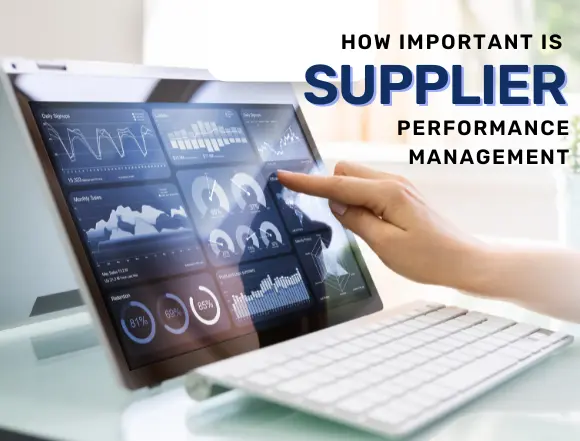How Important is Supplier Performance Management

How Important is Supplier Performance Management
According to a survey conducted by Gartner, improving the performance of existing suppliers is among the top critical tactics procurement leaders must use to deliver value to the business.
Metrics and KPIs should measure beyond traditional operational metrics such as on-time delivery, quality and cost savings to ensure that suppliers’ performance aligns with business goals. While these metrics are fundamental, they are not game-changers. More innovative criteria should also be included in the suppliers’ performance reviews.
These should include measuring suppliers’ innovation capabilities and ability to support new product introductions to the quality of the relationship and responsiveness of their service team. Incorporating these value-oriented metrics helps companies move from being reactive, looking only at history, to being predictive and future-focused.
In a research on Supplier Performance Management conducted by Gartner, the key findings are as follows:
-
Procurement organisations with advanced Supplier Performance Management practices deliver 20% more procurement ROI than organisations with basic supplier performance management practices.
-
When Procurement mismanages supplier performance in the contract monitoring stage, 75% of the cost savings procurement has delivered can disappear within 18 months.
-
Only 9.7% of Procurement staff hours, and 11% of Procurement’s budget, are allocated to supplier management. The returns to Supplier Performance Management can be significant, but Procurement’s available resources are constrained.
-
Only 35% of Chief Procurement Officers (CPOs) say they currently have a working supplier segmentation model. Most procurement organisations spend too much time managing low-criticality suppliers and not enough time managing high-criticality suppliers.
-
Procurement organisations with automated scorecards extract over twice as many supplier innovations while operating at leaner levels.
The research reveals that Supplier Performance Management has not been getting the proper prioritisation in many organisations until recent times.
Several current trends heighten the importance of addressing Supplier Performance Management. Companies today increasingly rely on suppliers as their third-party networks grow larger and more complex. The pandemic has caused many organisations to look into their technological capability to cope with the changing work arrangments. New sources of supplier risk, including technological concerns (e.g., data privacy, cybersecurity) and regulatory pressures (e.g., GDPR), increase the importance of risk as a criterion for segmenting suppliers and evaluating performance.
Many companies are also rapidly increasing their investment in Corporate Social Responsibility (CSR) practices and environmental protection. They become a critical new dimension for measuring and improving supplier performance. Cost control and risk mitigation will be essential for Procurement. The looming possibility of an economic downturn may necessitate tighter coordination between Procurement and suppliers.
Is Supplier Performance Management given the correct prioritisation in your organisation? Are you achieving the maximum benefits from supplier performance reviews and improvements?
If you need an easy-to-use, intuitive tool with the best-in-class Supplier Review functionality, please get in touch with us today.
Reference:
Procurement Research team, 2019, Driving Improved Supplier Performance , Gartner, viewed 1 August 2022, < https://www.gartner.com/en/documents/3912890/>.

